What Are the Basics of Raising a Mini Goldendoodle Puppy?
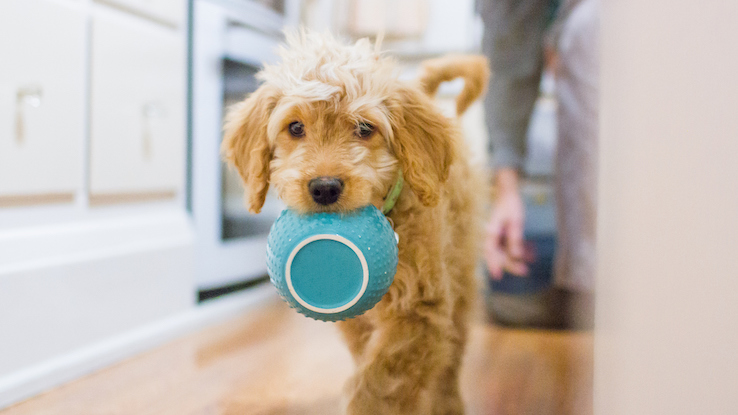
Goldendoodles — dogs that are a cross between poodles and Golden Retrievers — are one of the most popular breeds available, but what you may not realize is that they come in three sizes: large standard, small standard and miniature. A miniature (or mini) goldendoodle is a cross between a toy poodle and a Golden Retriever. They usually weigh anywhere from 15 to 35 pounds and typically range from 13 to 20 inches tall. Aside from their more compact size, goldendoodles aren’t much different from their larger counterparts. They have similar personalities and many of the same care requirements, which are important to learn about if you’re considering adding a mini goldendoodle to your family.
Is a Mini Goldendoodle Right for You?
Goldendoodles, including the miniature variety, make great pets, but they’re not for everyone. One reason why is that they have tons of energy and need frequent exercise, so apartment living isn’t ideal. They don’t like extremely hot or cold weather, so if you live in an area where temperatures can get extreme and you can’t provide a reprieve, the breed may not be for you.
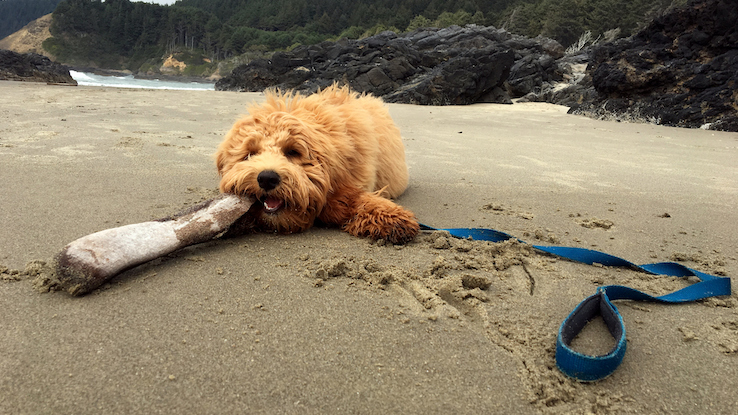
However, if you’re looking for a family-friendly dog, you’ve found your pet. Mini goldendoodles love humans of all ages and are great with kids. They also get along well with other dogs and, most of the time, if they’ve been socialized properly, they are friendly towards strangers.
A goldendoodle’s ideal home is one with a fenced-in yard to prevent the dog from getting out; the pup’s need for exercise might cause it to run off. These dogs also prefer to live inside with their families ― both human and dog ― because they’re quite affectionate and sometimes even a bit clingy. They often have separation anxiety, so they may be a better choice for people who work from home and can give their dogs more attention throughout the day.
What’s a Mini Goldendoodle’s Personality Like?
Mini goldendoodles usually have friendly personalities, which is one reason why they’re so popular as pets. They are smart, easy to train and almost always extremely playful and active. Goldendoodles are loyal to their families and love affection — be ready to receive plenty of kisses and snuggles. While every individual dog is different, the hybrid breed is not prone to be aggressive toward people and other animals. This friendliness means they don’t make very good watchdogs.
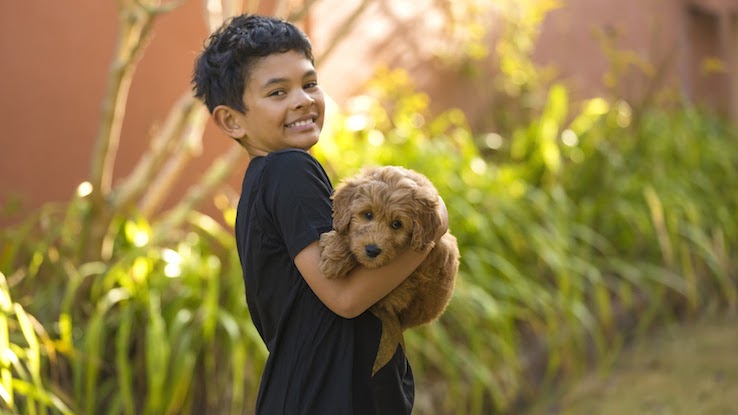
With some gentle training, goldendoodles usually become very obedient dogs. They’re also highly intelligent — the poodle is well-known for being one of the smartest dog breeds — so it’s easy to train your goldendoodle to follow commands and even perform a fun trick or two. This combination of intelligence and obedience typically makes these dogs great service animals and therapy pets.
Feeding and Grooming a Goldendoodle
Another reason why goldendoodles of all sizes are so popular is that they don’t shed as much as other breeds and often don’t aggravate allergies — keep in mind that there’s no such thing as a “hypoallergenic” dog, so the breed could still trigger allergies if you’re sensitive. However, they still need some grooming. Brushing a mini goldendoodle a couple of times a week will help keep its coat in good shape.
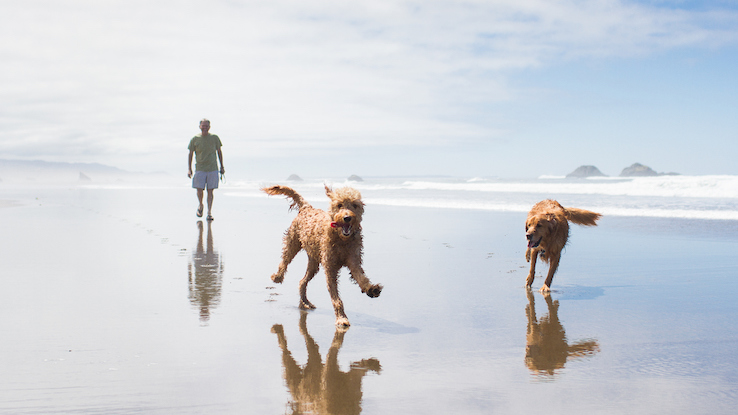
When it comes to bath time, be sure not to overdo it. Goldendoodles are typically clean dogs, and too much bathing can dry out their fur and skin. One bath every three months, unless otherwise necessary, is ideal. These dogs need nail trims about once every two months, and ideally, tooth brushings about twice a week. Finally, it’s important to make sure a mini goldendoodle’s ears stay clean and dry to prevent infection.
The average mini goldendoodle eats about one to two cups of dog food per day. Unless your dog is inactive, you may want to choose a pet food that’s higher in calories. Puppies need higher-calorie foods because they’re growing quickly. Spreading your dog’s meal times out or feeding two to four times a day can also help keep health problems at bay. Of course, you’ll also want to make sure your goldendoodle has plenty of fresh water available at all times.
Exercise and Training Essentials for Mini Goldendoodles
Mini goldendoodles are typically easy to train, and they can benefit from obedience classes that help them learn commands and enjoy opportunities for socialization with other dogs and humans. One of your top goals should be to get your pup to walk on a leash so you can ensure it gets plenty of exercise daily.
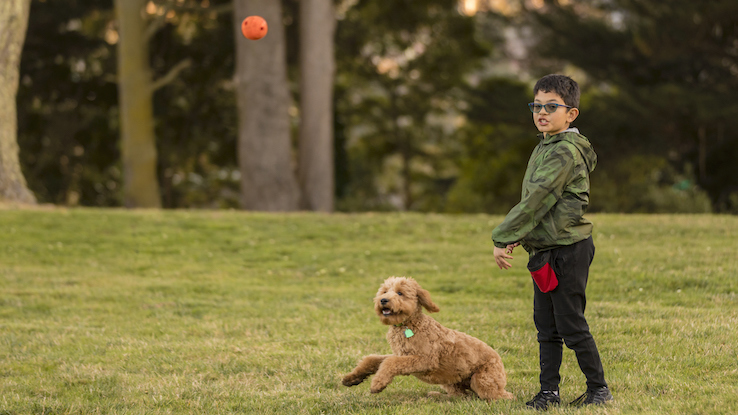
Speaking of exercise, a mini goldendoodle needs at least half an hour of dedicated activity every day. Some dogs may need more or less, depending on the individual pet. If your dog doesn’t get enough exercise, it may become bored and resort to chewing up your belongings or acting out in other ways. Goldendoodles often like to swim, so if you have access to water, your dog can get some playtime in that way.
How Healthy Are Goldendoodles?
While they’re generally healthy animals, mini goldendoodles are at risk for potential health problems like any other breed of dog. Purchasing one from a reputable breeder can help ensure you’re less likely to encounter genetic health issues in the future, but it can’t totally prevent them.

Some of the most common health problems mini goldendoodles face include patellar luxation or knee displacement, ear infections, hip dysplasia, elbow dysplasia, deterioration of the retina, a blood clotting disease called Von Willebrand’s disease and thyroid issues. Before you get a mini goldendoodle puppy, find and make contact with a trustworthy, skilled veterinarian who can help your pet enjoy good health for years to come.





